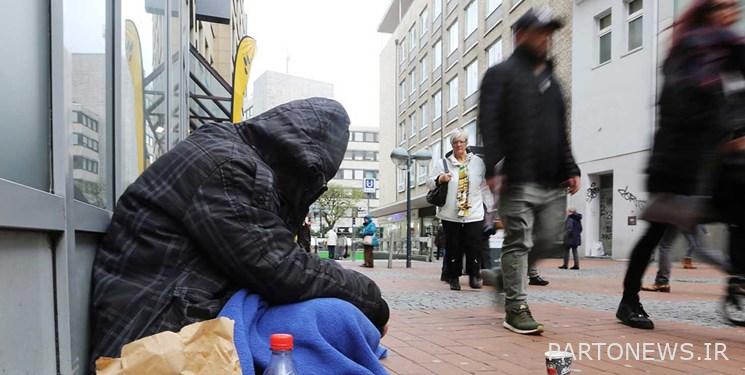Poverty in Germany has increased significantly

According to the report of the International Economic Group of Fars News Agency, citing Al Bayan, a specialized study has shown that poverty in Germany has increased significantly in the last decade.
The Institute of Economic and Social Sciences (WSI) affiliated with the Hans Böckler Foundation, which is close to trade unions in Germany, announced yesterday in a report: the proportion of poor people with less than 50% of the average income increased between 2010 and 2019. It has increased from 40%.
This report emphasized: There are many cases that indicate the intensification of poverty in the following years due to factors such as the Corona epidemic (Covid-19), the explosion of energy prices and high inflation.
The authors of the report summarized the result of their study by saying that the number of people affected by poverty in Germany in 2019 was higher than ever before.
They explained that despite the good economic development of the last decade and the low unemployment rate in Germany, the poor families did not benefit, but their situation continued to decline.
The report states that the poverty gap, the amount an average family loses until it falls below the poverty line, has increased from €2,968 in 2010 to €3,912 in 2019.
* Applying a 90% tax on clean energy profits in Germany
On the other hand, Germany announced its plan to recover 90% of the profit from some clean energy projects, which the government of this country is supposed to use to finance the aid package for consumers.
According to a draft law in Germany, the government plans to capture 90 percent of the profits of more than 130 euros per megawatt hour generated by solar, offshore wind and nuclear power plants.
German politicians are trying to claw back some of the profits that companies like RWE AG are making from higher energy prices.
Germany is developing coal-fired power generation to meet winter needs, and the German government will tax power producers on an upward curve.
The German government levies a tax of more than 52 euros per megawatt hour produced by coal-fired power plants and 28 euros for plants that use oil.
Also, these measures will be applied retroactively for ten months from the beginning of September 2022 to the end of June 2023 and can be extended until the end of 2024. These measures will be applied retroactively for ten months from the beginning of September 2022 to the end of June 2023 and can be extended until the end of 2024.
Germany unveiled a 54 billion euro support package on November 22 that will cap gas prices for businesses and households from next year, with part of the subsidy package for German households’ electricity bills coming from a tax on super profits. According to the German government, a double-digit amount of billions is expected to be collected from its location.
end of message/
You can edit this article
Suggest this article for the first page

